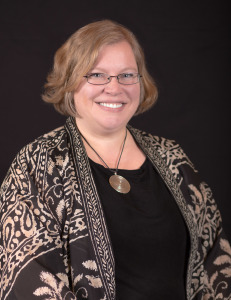We love graduations. Whether we are watching a preschool celebration in a crowded auditorium, caps being thrown in the air on a high school football field, or the ceremonial hooding of a doctoral graduate on a stage….Pomp and Circumstance brings tears to our eyes.
Part nostalgia? Probably. It is also part anticipation, dreaming of what it will be like to experience these events with our children. It is part sadness, thinking of those who may never have the opportunity to experience such things. But, mostly, it is a vicarious feeling of triumph for those who have set their mind to a goal and obtained it.
Completing a degree in the best of circumstances is trying. When you consider the typical online population of adult Learners, one cannot help but be awestruck at how monumental gradation is: juggling families (sometimes children and parents, in sickness and health!) and careers (in times of economic prosperity as well as a faltering economy) – along with anything else life throws one’s way.
Graduations are the end result of dedication, perseverance, and hard work – not only from those walking across the stage, but for all the family members, friends and colleagues, and faculty and Staff who supported the graduate throughout their academic endeavor. Each and every story is touching: It is never solely about one person and one dream. It is about a family; a network of friends; a circle of colleagues; a cadre of encouraging Faculty, Advisors and Staff who cheered on the graduate when times were good, and picked them up when times were, well, not so good. Each story is a mosaic woven of purposeful human interaction that weaves a beautiful tale.
Perhaps the strongest emotion we feel at a graduation is one of hope: Hope that the completed degree will result in positive outcomes, not just for the graduate, but the world at large.
As we celebrate graduations this summer, let us also take on a great challenge, understanding that “Education is for improving the lives of others and for leaving your community and world better than you found it.” (Marian Wright Edelman, 1992)
Dr. Heather Frederick received her B.A. in Psychology from SDSU and both her M.A. in General Psychology and her Ph.D. in Social/Developmental Psychology from Brandeis University (with concentrations in quantitative methods in psychology and lifespan development).
Heather has taught at SDSU, was employed as a research analyst for a private health care company, and ran her own independent consulting business. At Walden University she served as an Associate Director for the College of Social and Behavioral Sciences. She has held multiple roles at Northcentral University (NCU), including Dean for the School of Psychology and Vice President of Academic Affairs. In her current role (Dean, Graduate School) she works with an amazing team of incredibly talented Chairs and committee members who mentor doctoral candidates through their dissertation research. She feels incredibly lucky to have job that allows her to be pursue her passion for assisting graduate students in completing their degree.
A native Southern Californian, she resides in Laguna Niguel, CA. Her ten-year-old twin daughters, who share her love of music, keep her busy. She loves rekindling hobbies that for far too long she said she didn’t have time for: dancing, inline skating, playing harmonica, hiking, biking, creating gluten-free and sugar-free treats, and reading entire books in one sitting.

Melanie Shaw has over fifteen years of educational experience ranging from classroom and graduate level teaching to counseling and administration. She is Director of Online Curriculum and Instruction at Clemson University. In addition, Melanie is a dissertation chair, teaches undergraduate and graduate courses online, and develops curriculum for a variety of higher education institutions. She serves as an education consultant and as Executive Editor for the eLearning Institute.
Melanie’s primary research interests include online teaching and learning, organizational leadership, and distance learning instructional practices. She is the author of several books, articles, and chapters including: The Genre of Instructor Feedback in Doctoral Programs: A Corpus Linguistic Analysis; An Evaluation of Student Outcomes by Course Duration in Online Higher Education; Establishing an Online Professional Development Community to Promote Faculty Engagement and Excellence; Motivational Factors of Generation Y Educators: Implications for Teacher Retention; Distance Learning Courses: A Survey of Activities and Assignments; and Online Course Activities: A Survey of Assignment and Assessment Types. In addition to Melanie’s publications, she has presented at the U.S. Distance Learning Association Conference, Online Learning Consortium Conference, the Ubiquitous Learning Conference, International Learning Conference, and the Distance Learning Administration Conference. She is the winner of the Wagner Award for Outstanding Instructional Support and the Online Learning Consortium’s Effective Practice Award.
Melanie received a Ph.D. in Education with a specialization in Curriculum and Teaching from Northcentral University, a master’s degree in Education Administration from Grand Canyon University, and a second master’s degree in School Counseling for the University of West Alabama. She received her bachelor’s degree in Liberal Studies and Music from Excelsior College. She holds teaching certificates in online teaching, elementary education, and guidance counseling. She lives near Colorado Springs with her husband and two daughters.


